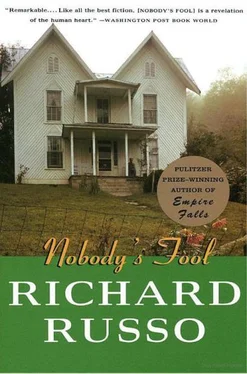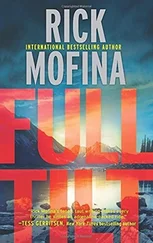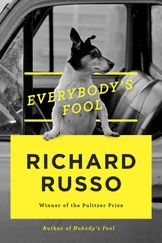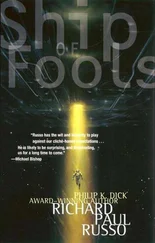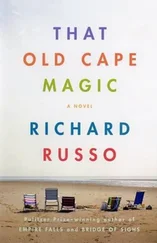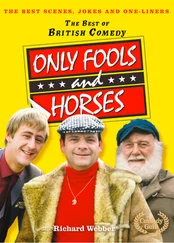Lost in the soothing contemplation of Rub’s intellectual limitations and having given up on the idea of anybody stopping, Sully did not immediately notice when a small olive green Gremlin pulled over to the shoulder of the road some fifty yards ahead, its turn signal blinking. That it had stopped for him occurred to Sully only when it tooted. The Gremlin was old and banged up, and he half recognized the car as belonging to someone he knew, but couldn’t think who. Sully didn’t know anybody in Bath who drove a Gremlin, which deepened the mystery, because he didn’t know that many people outside of Bath. When the Gremlin tooted a second time, Sully realized that he had stopped walking, that he was stalled right there along the shoulder, as if solving the riddle of who owned the Gremlin were prerequisite to accepting a ride in it. Somebody had rolled down the passenger side window and was waving impatiently. Sully started walking.
The Gremlin had an out-of-state license, though it was too dirty for Sully to guess which state. The little car’s slanting rear window was piled high with clothes and blankets and toys, making it impossible to see inside, and Sully approached the car with serious misgivings, which only increased when a familiar-looking young woman poked her head out the passenger side window and glared at him. Her expression bespoke considerable irritation, as if one look at Sully had reminded her of half a dozen unpleasant things she’d forgotten about him. Without knowing exactly why, Sully felt a sudden urge to flee, as if the woman hailed from some amnesiac past and had returned bent on slapping him with a patrimony suit.
“Hi, dolly,” he said when he was close enough to be heard, having decided to brazen it out. In his sixty years he’d forgotten enough people to know that the best way to handle such situations was to pretend you knew who they were until they gave you a clue. Whoever this unpleasant-looking young woman was, he’d remember eventually. All his adult life he’d called young women “dolly,” so if this one knew him, she wouldn’t be surprised. When he got alongside the car, he saw there were three children crowded into the cramped backseat among pillows and stuffed animals, slightly older versions of children he knew from somewhere. The young woman got out and pulled one of the bucket seats forward so Sully could crawl in back, and as he leaned forward and caught a glimpse of the driver it dawned on him who the hell these people were.
“Shove over, you runts,” he said, making a face at the children. “Make room for Grandpa.”
“Give me Andy,” said Charlotte, his son’s wife. “That way you’ll have a little room anyway,” she let her voice trail off.
Sully would have liked to give her Andy, but he was momentarily confused. He was half in the Gremlin’s backseat and half out of it, and pretty sure which of his grandsons was Andy but unable to commit fully. He was almost positive Andy was the baby, but if he was, then Charlotte’s request made no sense. The child was strapped into a car seat, and even if Sully were able to unbuckle him — and this looked doubtful, given the contraption’s complexity — the only result would have been an empty car seat, not more room for an adult.
“Unstrap your brother, Will,” said Peter, Sully’s son. “Don’t just sit there like this is TV.”
The oldest boy, who looked amazingly like his father at the same age, did as he was told, but he wore a brooding expression, as if he’d been asked to bear too much responsibility. If the oldest was Will and the youngest was Andy, that left only the middle boy, who was staring at Sully in unselfconscious bewilderment, a bubble of snot at one nostril pulsing to the beat of his respiration. Sully conceded that, to the boy, he must look strange, caked with mud.
When Andy was passed into the front, Charlotte turned her weary attention to the middle boy. “Get in your brother’s seat, Wacker. You expect Grandpa to sit in it?”
“That’s a baby seat,” the boy frowned.
“I’ll sit in it,” the oldest boy sighed, unhooking his seat belt.
This put the middle boy into motion. “Mom said me! Mom said me!” he cried and let his big brother have one as Will attempted to climb into the seat he clearly would not fit into. The smaller boy’s fist caught the larger boy right on the bridge of the nose, and for a second Will’s eyes welled up, allowing his little brother to scramble into the baby’s car seat, from which he grinned malevolently at his injured brother. To Sully’s surprise, the older boy made no move to retaliate.
Now that there was a free crevice, Sully let himself slide into it, gingerly maneuvering his leg into the restricted space, bending it slowly at the knee. What was Wacker’s real name? he wondered. Something that sounded like Wacker, maybe. He searched his memory for a boy’s name that sounded like Wacker.
“Wacker punched me again,” Will said to no one in particular. He was inspecting his nose for blood, seemingly disappointed there was none. Had there been blood, somebody might have believed him. Wacker showed his big brother a small, bony fist, and his eyes narrowed, as if to imply that a second assault might just provide the evidence.
“Punch him back,” Sully’s son suggested, pulling the Gremlin back onto the road. He had not turned around in the seat or offered to shake hands or given any sign that he was happy to see Sully. But then that’s the way it had been between them since Peter had gone off to college — what? fifteen? twenty years ago? Probably Peter considered such treatment payback, simple karmic justice, and if true, Sully did not object. When the boy was growing up, Sully had never willfully ignored him, certainly wouldn’t have passed him on life’s highway if the boy had needed a lift. It was just that his mother had seen to it that the boy never needed a lift. She and Ralph, the man she’d married a year or so after divorcing Sully, had done such a good job raising Peter that the boy never needed anything, and Sully knew Ralph was doing a better job as a father than he himself could have managed. By staying out of his son’s life, he was doing the boy a favor, or that had been his reasoning. Not an unwise decision, it seemed to Sully even now. True, Peter had grown up laconic and without much apparent ambition of his own, but he had Vera’s considerable ambitions on his behalf to draw from, tempered by his stepfather’s easy good nature, and somehow Peter had made himself a college professor of something or other, Sully couldn’t remember what.
“Clobber him, in fact,” Peter said without much conviction. “People hit you, hit ’em back.”
“This from a former conscientious objector,” Charlotte snorted, as if her husband’s remark were final proof, were any needed, of his fundamental hypocrisy. Sully, who seldom registered such things, couldn’t help noticing the tension in the front seat and wonder as to its cause. Had one of them not wanted to stop and give him a lift? If so, it probably would have been Charlotte, not Peter, who insisted on stopping. He seldom saw his daughter-in-law, but he’d always been fond of her. She was a big, awkward girl with an open face who didn’t as a rule mind being kidded, and kidding was one of the relatively few things Sully had to offer, that and the unspoken camaraderie that had naturally evolved as a result of Vera’s disapproval of both of them. Vera had never made much of an attempt to disguise her opinion that Peter had not married well, that Charlotte was not the kind of woman who was likely to advance his career. They had lived together before marrying, and Vera hadn’t approved of that either. That they’d married only when Charlotte became pregnant with Will proved, to Vera’s way of thinking, that her son had been trapped. Charlotte had explained all this to Sully once, and he’d felt bad for her. What little he knew about his son’s life he got from Charlotte’s chatty Christmas cards.
Читать дальше
